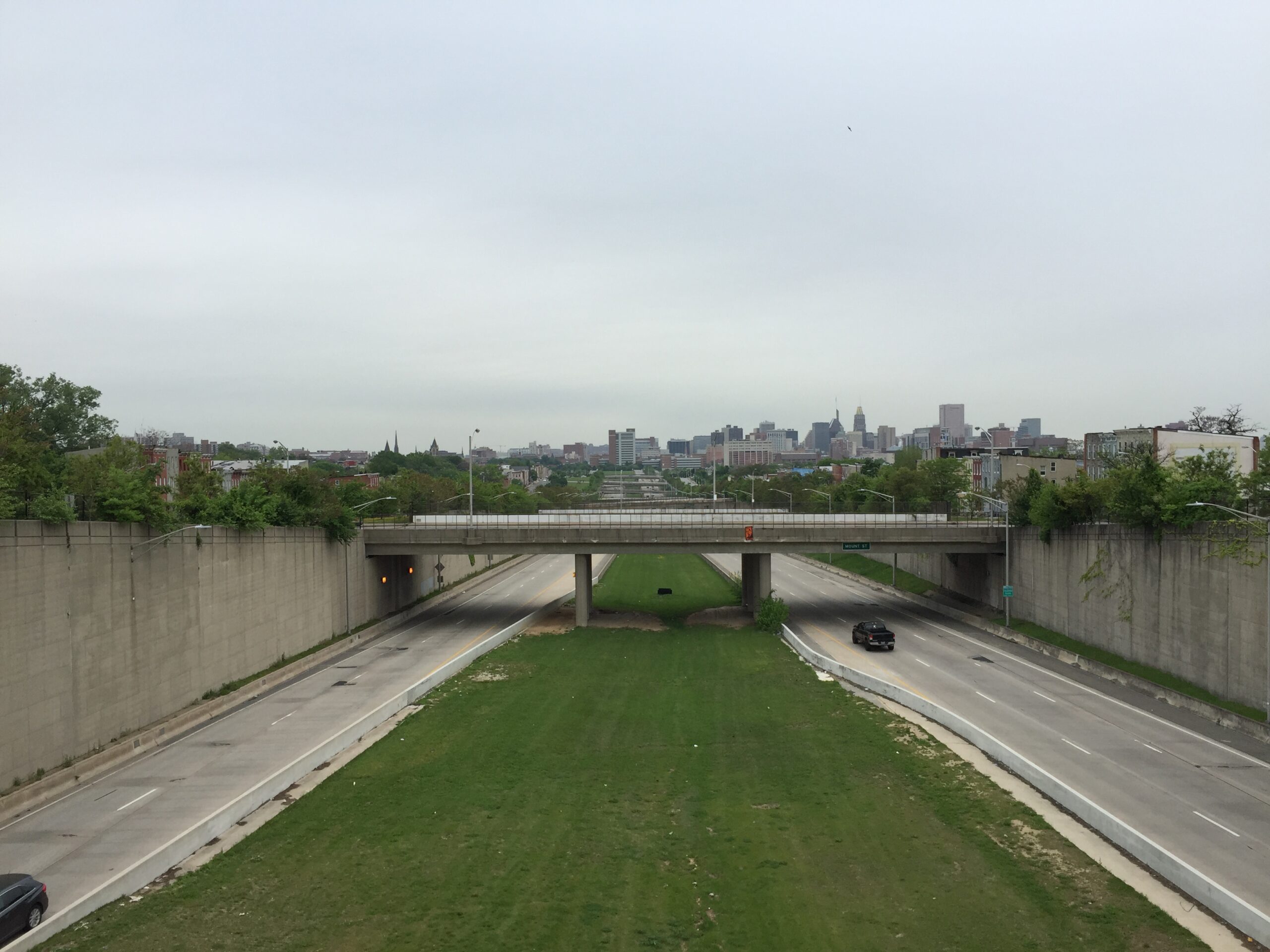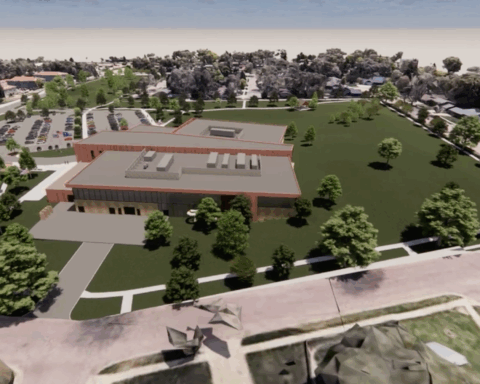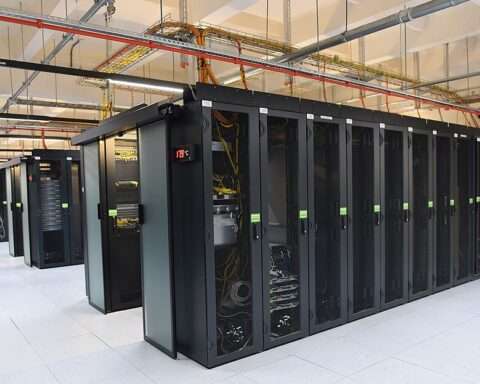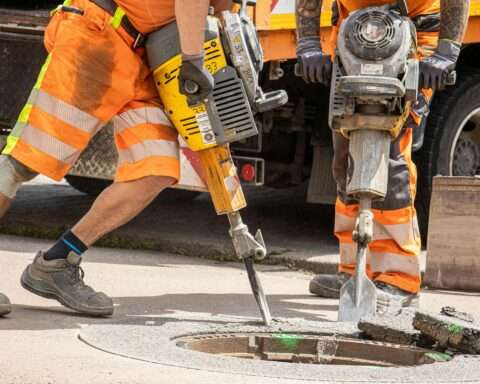Maryland will receive millions in federal funding to reunite Baltimore communities and rejuvenate a troubled corridor that has segmented the city for over 50 years.
The U.S. Department of Transportation (DOT) is announcing $85.5 million in federal pilot funding for the two-phase Highway to Nowhere project in West Baltimore. The project, led by the Maryland Department of Transportation (MDOT) will redevelop the dangerous and aging corridor to enhance economic opportunity, improve public health and safety and better serve West Baltimore residents and businesses.
RELATED: Maryland DOT seeks strategic plan for mixed-use developments along MARC Penn line
“This award represents a critical first step in bringing communities and neighborhoods that were divided by highway infrastructure back together around a more connected, safe and livable future,” Maryland Transportation Secretary Paul J. Wiedefeld said. “The grant funding will enable new economic development opportunities, safer and more livable streets, and new community spaces and housing that are accessible to transit.”
The so-called Highway to Nowhere is a nearly 1.4-mile segment of U.S. 40, initially constructed in the 1970s, that sought to join Interstates 70, 83 and 95 in and around the city’s Central Business District. However, the highway’s full vision required the destruction of dozens of communities and never saw the light of day. Today, the short segment is all that remains of these previous efforts, offering a hazardous reminder of communities once connected in West Baltimore.
The Highway to Nowhere’s grant will come from the DOT’s Reconnecting Communities Pilot Grant Program, a federal grant program that delivers funding to projects that address historical inequities in jobs, education, healthcare, food, nature and recreation. The program, funded by the Bipartisan Infrastructure Law, supports nationwide efforts to increase the access, reliability and development of community necessities and economic opportunities.
Specifically, this program funding will advance the project’s estimated $200 million first phase, which seeks to cap one block of the highway, deconstruct several ramps and develop safety improvements to make the corridor more accessible to pedestrians and drivers. This grant will build upon an earlier $2 million investment from the DOT to assess the redevelopment project’s scope and engage with stakeholders.
The proposed cap, located between North Calhoun Street and North Carey Street, would connect two parallel bridges over the entrenched highway to provide a new space for development. This new cap and its accompanying space would better connect neighborhoods to the north and south, also serving as a station for the city’s new proposed Red Line light rail.
The highway project will also demolish two bridges that carry U.S. 40 over Martin Luther King Jr. Boulevard to the east of the project’s main site.
Utilizing pilot program funds, the Highway to Nowhere Project will enter into the procurement and community engagement stages in Q1 and Q2 of 2025, respectively. In 2026 and 2027, the project will conduct the permitting, preliminary and final design stages along with the start of ramp deconstruction and safety improvement initiatives.
The redevelopment project’s crowning jewel, the single block cap, is anticipated to begin construction in 2029, according to the official proposed schedule.
This highway redevelopment project will expand federal efforts to reunite and restore historically disadvantaged communities around the country.
Now entering its third year, the Reconnecting Communities Grant Program will have up to $607 million available for planning, capital construction and technical assistance grants in fiscal years (FY) 2024, 2025 and 2026. Based on previous funding announcements, the DOT should announce awards for FY 2024 by early March.
“For far too long, the Highway to Nowhere has divided West Baltimore and been a barrier to economic growth and opportunity in Baltimore,” Sen. Chris Van Hollen said in a press release. “We fought to create the Reconnecting Communities Program in the infrastructure modernization law to address this injustice and right similar wrongs across the country – and with this major $85 million federal investment, work can begin to reunite West Baltimore, revitalize its neighborhoods and boost opportunity for residents.”
Photo courtesy Famartin, CC BY-SA 4.0 https://creativecommons.org/licenses/by-sa/4.0, via Wikimedia Commons













